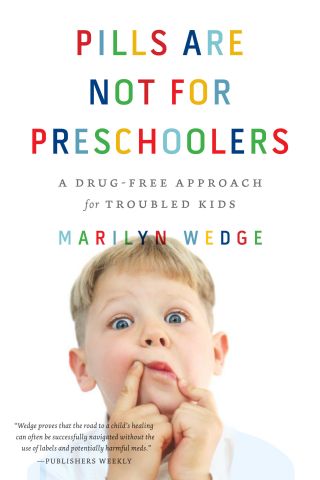ADHD
How to Find a Family Therapist
7 questions to ask when you are looking for a family therapist
Posted August 20, 2012
Family therapy can help children with all sorts of problems--ADHD, depression, disruptive behavior, bullying, fears, and anxiety issues (like school phobia and OCD). It can be a safe and very effective alternative when parents do not want to go the route of psychiatric diagnosis and medication for their child. There is a chapter on how parents can find the right family therapist for your family in my new paperback, Pills are not for Preschoolers: A Drug-free Approach for Troubled Kids.
Just as you would take time to become an informed consumer before buying a new car or a new computer, you will need to put some time and effort into choosing the right therapist for your family. And the time you put in will be well spent.
A good place to start is with your pediatrician. Ask if she can recommend a family therapist who has been successful in treating problems like the one your child is having. Also ask other people whom you trust for recommendations. Your child’s teacher or school counselor may be able to give you a recommendation as well. Your health insurance company may be another good source.
When you have a few names, I suggest that you ask the following seven questions. Therapists should be willing to answer at least two or three of these questions in an initial phone conversation. You may have to schedule a brief introductory session to get answers to all of them.
1.How long have you been in practice as a family therapist? Look for someone who has been practicing as a family therapist for at least five years.
2.Do you ever see children and parents together in the same room? The answer to this should be “yes.”
3.Have you successfully treated children with the type of problem my child is having? What is your success rate with this kind of problem?
4.Do you approach children’s problems from a family systems point of view? If so, did you have supervision or training in this approach specifically? The answer to these questions should optimally be “yes.” If the therapist has had supervision at a family therapy training institute, this is a big plus. If at all possible, find a therapist who has supplemented her academic training with postgraduate private training in family therapy by attending workshops, seminars, or conferences conducted by master family therapists.
5.Do you see a child’s problem as an individual problem or a social context problem? The answer should be that the therapist takes the social context or interpersonal environment of the child into account.
6.Do you ever consult with a child’s teacher, school counselor, or other family members? The answer to this question should be “yes.” A good family therapist will explore all the social contexts that may be affecting your child.
7.How soon will I see improvement in my child? Of course, it’s difficult to predict exactly how many sessions it will take to see improvement, especially if the child has had a problem for a long time. But with a competent therapist, you should expect to see some minimal improvement after four or five sessions of family therapy.
If a therapist talks about a “diagnosis” for your child in your initial conversation or in the first session, this is a red flag. You do not want a therapist who is interested in diagnosing or labeling your child and finding more symptoms that warrant that label. You want someone who will do what it takes to solve your child’s problem. You also want a therapist who actively talks to you and offers good advice or concrete techniques to help your child, not someone who sits back and passively listens.
Pills are not for Preschoolers is forthcoming in paperback from W. W. Norton & Company on August 27, 2012.

Connect with Marilyn Wedge:


